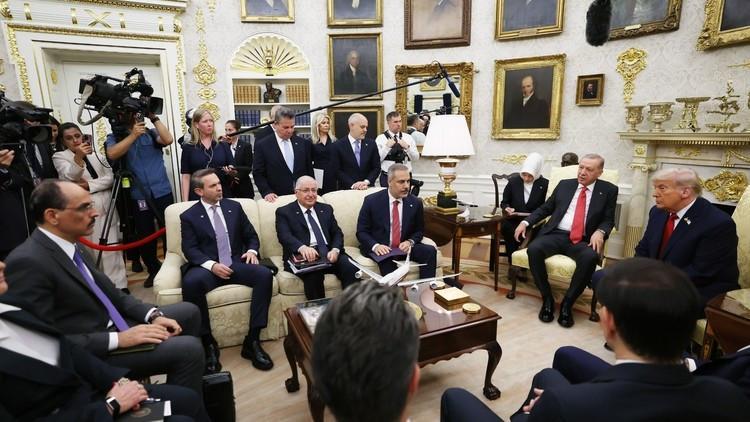
New agreements between Türkiye and the United States in liquefied natural gas (LNG) and nuclear energy are set to strengthen their strategic energy partnership, according to experts.
The Strategic Civil Nuclear Cooperation Memorandum, signed last month, aims to advance civilian nuclear technology and regulatory collaboration.
Meanwhile, state-owned BOTAŞ inked a long-term deal with a U.S. LNG exporter to supply about 4 billion cubic meters of American LNG annually starting in 2026.
Brigham McCown, senior fellow and director of the Initiative on American Energy Security at the Hudson Institute, told state-run Anadolu Agency that both pacts hold strategic value for energy security and economic ties.
Describing the nuclear agreement as "a strategic move aimed at diversifying Türkiye's energy mix away from unstable suppliers," McCown said it would expand the U.S. nuclear export market and create jobs in America.
"The agreement aims to strengthen civil nuclear cooperation within strict non-proliferation rules. It addresses Türkiye's growing energy demand through technology sharing, fuel security and regulatory alignment. For the U.S., it advances the nuclear export market, translating into jobs at home. It also diversifies Türkiye's energy sources from Russia, bolstering NATO's southeastern flank," he added.
"In the short term, the focus will be on workforce training, regulatory cooperation and eventually new U.S. reactors. This could also include SMR [Small Modular Reactor] pilot programs. Technology transfers are always sensitive, so it will be interesting to see how the details shape up," he said.
On the LNG front, McCown noted that the 20-year supply deal, starting in 2026, offers "win-win" benefits for supply security and economics.
He said the pact secures 4 billion cubic meters of U.S. LNG annually, with options for additional volumes tied to U.S. production. "Extra emphasis is placed on winter deliveries to meet peak demand, which could translate to lower natural gas bills for consumers. These flexible terms help Türkiye optimize shipments, though pricing details still need clarification," he stated.
McCown explained that the American LNG would ship from U.S. Gulf Coast terminals and be regasified at facilities in Türkiye. While the volume is significant, he pointed out that it covers less than 10 percent of Türkiye's natural gas demand. "Still, this modest amount can have a disproportionately positive impact by diversifying from volatile suppliers, stabilizing gas prices. A small increase in supply exponentially eases constraints and thus balances pricing. This step also supports the two countries' goal of reaching $100 billion in bilateral trade," he said.
"On the nuclear side, deploying U.S. reactors will lower costs for Turkish consumers and enhance electricity supply stability," he stated.